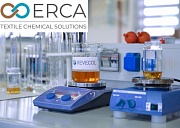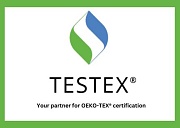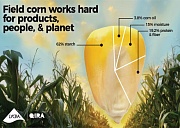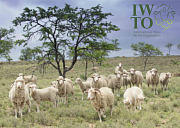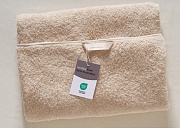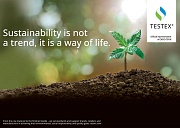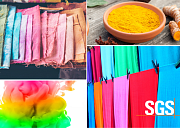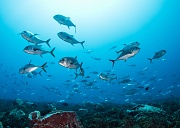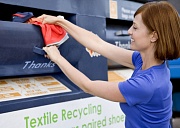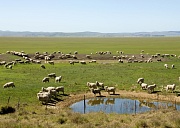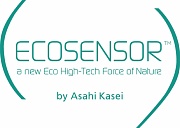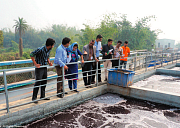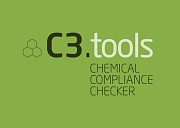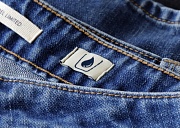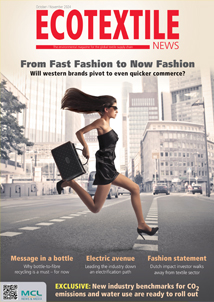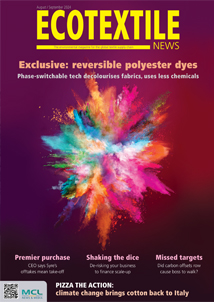SPONSORED CONTENT - It is well known that the textile industry has a sustainability problem. It is projected that by 2030 global clothing consumption will increase by 63% which is the equivalent of 500 bn new T-shirts. Over recent years the industry has come under the microscope, examining the human and environmental impact of its practices. If things do not change this continued growth will cause untold harm to the planet and the people already exploited by the supply chain.
Fortunately, efforts are being made to bring about positive change. Of critical focus in recent years has been addressing the unsafe working conditions faced by employees, particularly following the tragic Rana Plaza disaster in 2013. In terms of environmental impact, several initiatives, such as ZDHC and Bluesign, aim to remove hazardous chemicals in the supply chain and reduce the vast quantities of water required to manufacture fabrics. These globally recognised standards enable sourcing agents and consumers to confidently make more sustainable decisions.
One aspect of sustainable textile production that is perhaps less prominent is the global warming impact of the industry. The current greenhouse gas emissions from textile production already stands at 1.2 bn tonnes annually, more than the total output of some industrialised nations. Based on our current population and consumption trajectory, textiles could account for more than a quarter of global CO2 emissions by 2050, according to the Ellen MacArthur Foundation. If we are to limit global warming and its devastation on the planet, we need to redirect our current path.
Several full life-cycle assessments of garments and other textiles have been undertaken, and they demonstrate that attention must be paid at every stage of the supply chain, to reduce the total environmental load. This includes how fibres are grown or synthesised, how fabric is spun, treated and dyed, how the garments are constructed and delivered and then how they are used, washed and finally disposed of. Everyone, from farmers to manufacturers, to designers and consumers can contribute to change.
WeylChem Catexel has been working with the textile industry to enact positive change since the launch of our WeylCat Pegasus catalyst in 2011. We recognise that significant change requires true innovation and collaboration in the supply chain. WeylCat Pegasus is a powerful catalyst that enables cotton to be bleached at reduced temperatures. The bleaching of cotton is required to remove the wax, seed, dirt and natural colour of the crop and this process traditionally takes place at high temperatures (up to 110 °C) under highly alkaline conditions using hydrogen peroxide.
WeylCat Pegasus works with the hydrogen peroxide, activating this powerful oxidising agent, so that the bleaching can take place in a much shorter time, under milder conditions. The bleaching temperature can be reduced by, typically, 25 °C and the processing time by more than half. In 2019, approximately 500,000 tonnes of cotton were bleached using a WeylCat Pegasus based process. Assuming a 25°C temperature reduction was realised; this translates to more than 118 tonnes of CO2 emissions saved.
This calculation is a conservative estimate; it only considers the reduction in temperature of the bleaching liquor. Further CO2 savings will have been realised due to the shorter processing time; which critically improves asset utilisation in the textile factory. Furthermore, the milder conditions produce a softer feeling fabric with fewer creases. A softer fabric at this stage can require fewer finishing chemicals later, reducing further the environmental impact and greenhouse gas emissions in the fabric production cycle.
The milder process conditions also lead to a higher yield of cotton. WeylCat Pegasus does not harm the cellulose chains in the cotton and the lower temperatures mean less fibre damage vs. traditional processing. Higher yields means more profitable textile production but also better usage of the cotton crop that has been painstakingly grown. Producing higher quality cotton is crucial for producing higher quality garments and extending the clothing life. Extending clothing life by just nine months can reduce the carbon, waste and water footprint of a garment by approximately 20-30%5.
Though the pre-treatment of the cotton is just one stage in the long production cycle, we see that our innovation has already helped to reduce the environmental impact in the supply chain. This is in line with our ongoing commitment to deliver real, sustainable, game-changing technology across industries. To critically change the trajectory of the textile industry we will need collaboration across the supply chain and to re-think many facets of our current model. WeylChem Catexel is committed to facilitate this process, wherever it can.











